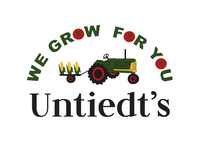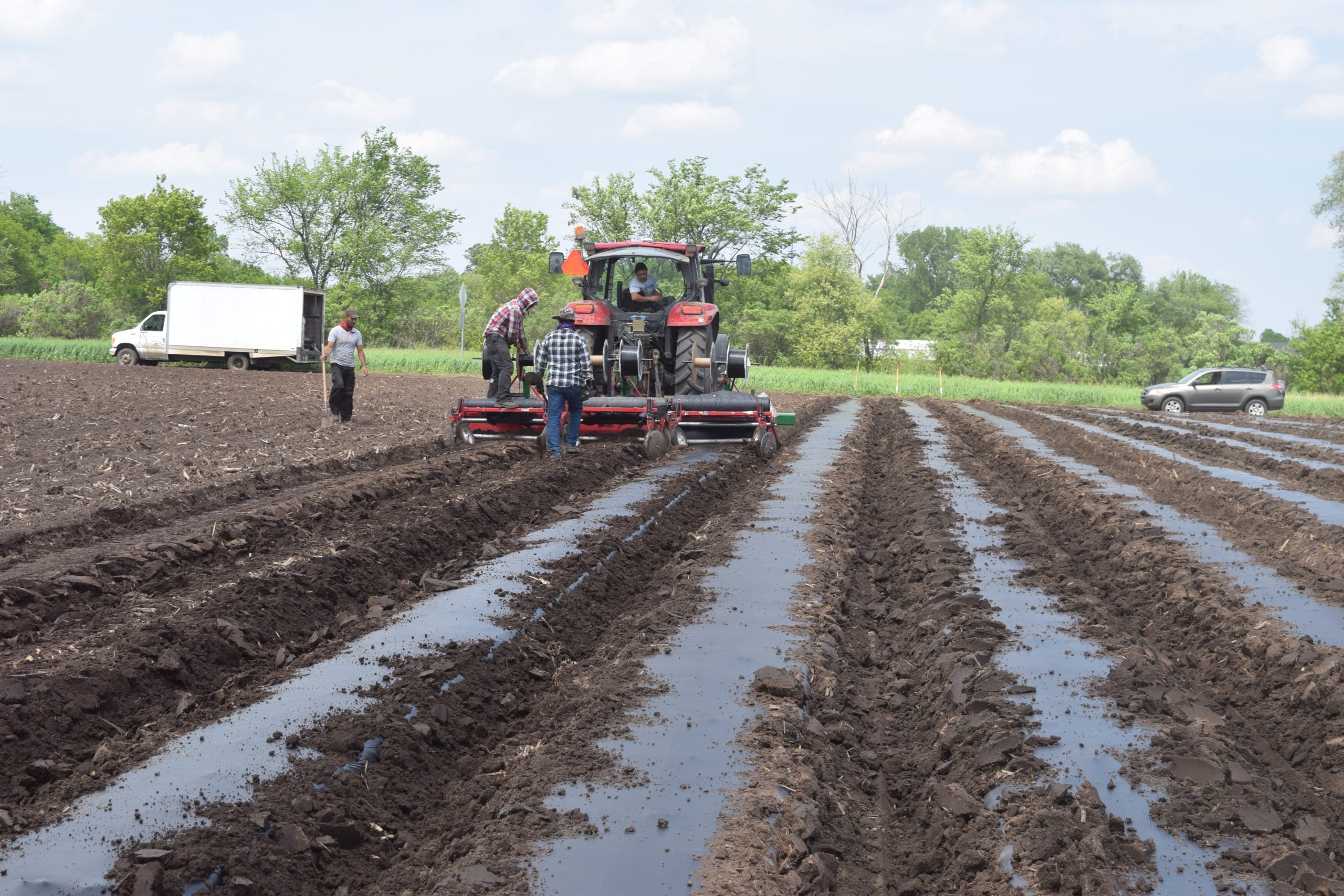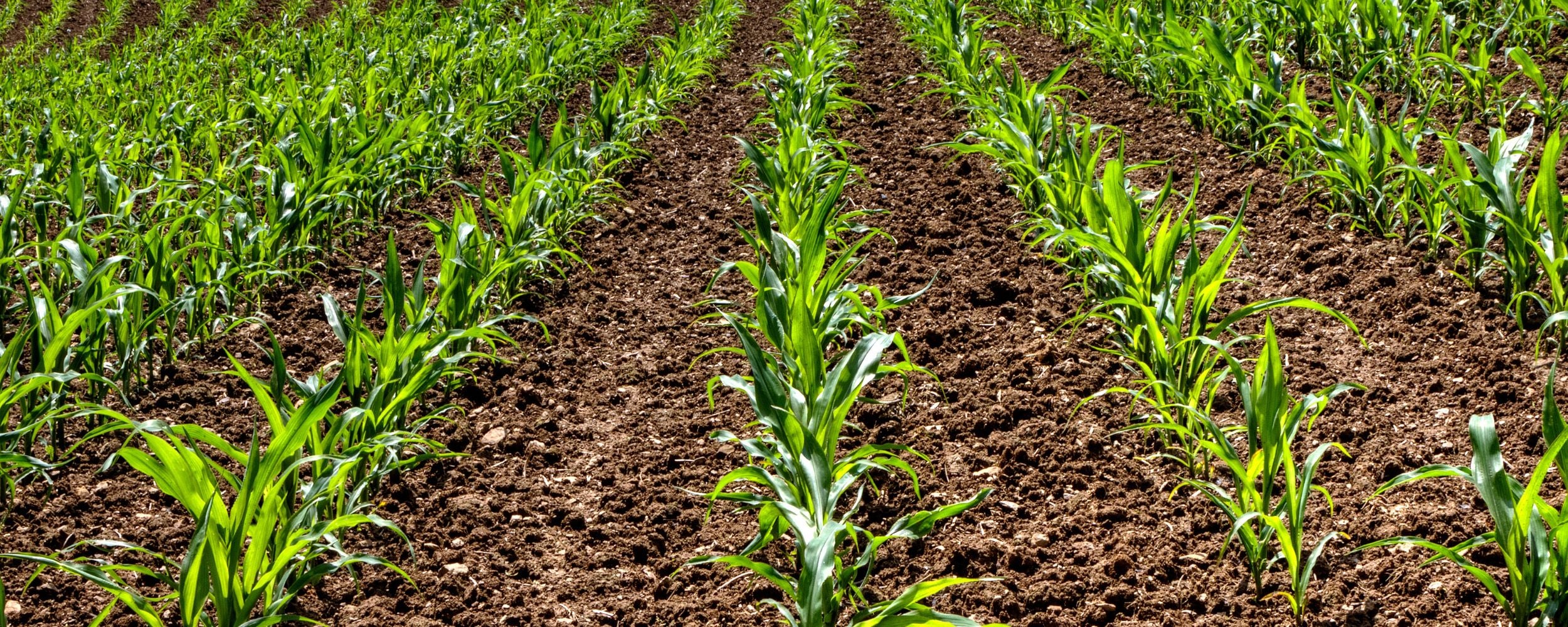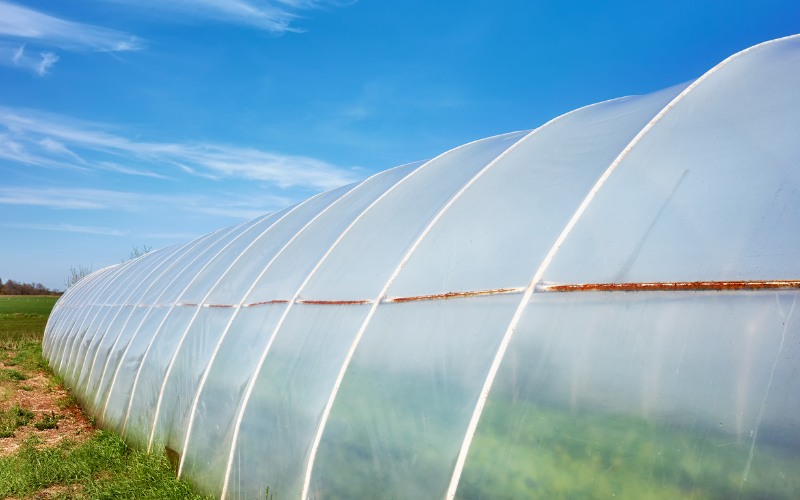Every harvest removes valuable and healthy nutrients from the soil. For example, our tomato crop is five percent potassium by weight, so for every ten tons of tomatoes harvested, we will remove, at least 1,000 pounds of actual potassium from the soil. Without soil rebuilding, nutrient depletion will occur, rendering our valuable soils incapable of sustainable future production.
Think of this as a checking account. If you don’t add money (nutrients) as checks are being written (as crops are being grown and harvested) you face overdrafts, bounced checks and a negative balance.
To counter this naturally occurring cycle, we must amend our soils continually; beginning with a thorough soil analysis after our harvest is completed. This is similar to balancing your checkbook. We can determine the amounts of nutrients used by the harvested crops by analyzing a soil sample. After receiving our checkbook balance (soil sample analysis), we then select the applicable method for correction.
Untiedt’s Vegetable Farm implements about 10 natural soil rebuilding programs to achieve optimal composition in the plant’s root zone. Due diligence is followed while utilizing these programs to select the healthiest amending processes available to us.
Spreading Manure
Spreading composted manure after we harvest in the fall, but before the ground freezes or snow falls, avoids loosing nutrients. We gently work it into the top soil, so that we don’t loose nutrients from wind and water erosion. This also allows the nitrogen to be worked into the root zone, and not allowed to escape into the atmosphere. Composted manure is one or our favorite soil amendments.
We also work in green manure to the soil. Sown on land where early maturing crops have already been harvested; cover crops like sorghum, rye, and field peas are allowed to flourish until being chopped and worked back into the land. Also we grow nitrogen fixing legumes, like beans, peas and clovers, to be amended back into the soil – not harvested. Our extensive cover crop menu naturally adds key nutrients (nitrogen, phosphorus, and potassium) to the soil during their decomposition.
Composting and Crop Residue
We never remove the remains of our harvested crops because they’re an extremely important source of organic matter and nutrients for our soils. Often times, this crop residue is chopped and spread on our fields to hasten decomposition and nutrient release back into our soils (like adding cash to your checking account balance). Often times, these residues have the ability to contribute ten-tons or more of organic materials per acre into the soil. Truly a beautiful and significant amendment!
Composting leaves, straw bails, old hay, etc., with a mixture of rock flour (which is composed of basalt and calcium to impart trace minerals), bacteria, and loam soils, allowing our recipe to biologically ferment all summer, creates a nutrient rich organic matter that looks similar to black dirt. Applying this to the land adds soil microbes, bacteria, and trace elements necessary for healthy soil management. Also, when the opportunity arises, we purchase off-site loam topsoils rescued from other areas which is an ultimate win/win.
Other Soil Amendments
Worm castings (Vermicomposting) is an amazing natural process where worms breakdown the first layer of soil, composted manure and cover crop residue to create a wonderful source of humus (decomposed organic matter), which contains many beneficial soil microbes, bacterial and fungi colonies, nematodes and protozoans, all expediting the decomposition of organic matter making natural compounds readily available to the plant. Truly a premiere natural plant food.
Soil Lime is added to maintain a healthy soil pH. Different plants flourish at different locations on the the acid to alkaline spectrum. There are two categories of soil lime. One is high in calcium, the other high in magnesium. These lime soil amendments can also add substantial calcium and trace elements.
Another important element in healthy soil management is liquid calcium, an amendment which allows our plants to properly draw needed nourishment from the soils. We apply this in three different manners: mixing it in with the water we use in our drip irrigation system, by spraying it on the leaves, or we mix it in with some of our fertilizers.
Also, we use calcium nitrate, a naturally occurring amendment sourced from Chile, and is made up of oyster and crustacean shells. We apply this a lot on our tomato plants because this compound releases its nitrogen slowly into the soil, so the plants won’t overdose on it.
Fish Emulsion is rendered cold-water ocean fish and sprayed onto the leaves of our plants, or mixed into the irrigation system. If you are standing down wind, there is no doubt on the farm when this is being applied. Its purpose is to add many important trace elements and natural omega 3’s not present in this plant environment.
As a family-farm, with three generations currently participating, we believe the key for our farm’s sustainability is the ability of our soils to produce a bountiful harvest year after year. Our soil building process is one that embraces the health and simplicity of organic technology, while utilizing sustainable, conventional scientific advances as well.
When you buy from Untiedt’s Vegetable Farm, know that you will be consuming produce that is nutrient-rich because the soil it was grown in was properly cared for, in a manner that truly respects the environment, by a family who has been stewards of the land for the last 50 years.



